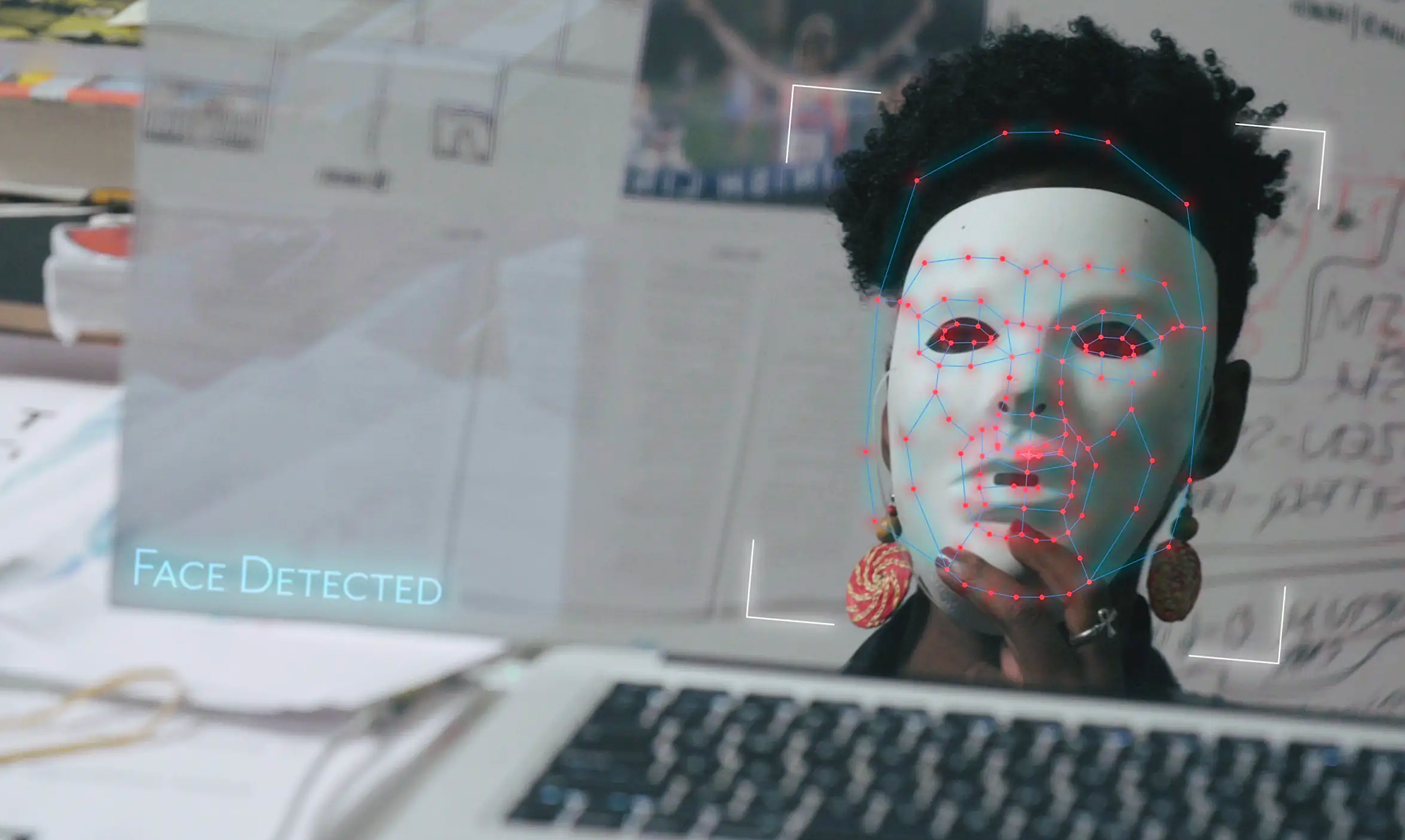
When MIT Media Lab researcher Joy Buolamwini was working on a project in 2018 that required the use of facial recognition software, she was startled to discover that the algorithm was unable to recognize her own face—until she put on a white mask.
Buolamwini, who is Ghanaian-American, soon realized that much of the facial-recognition software in use would often misidentify women and darker-skinned faces.
The problem, according to Buolamwini, was that most artificial intelligence (AI) programs—the basis for facial recognition technology and other software used for policing, advertising, hiring and financial services—were trained to identify patterns based on data sets that skew light-skinned and male.
Her subsequent work in this area, and the research and advocacy of others who are active in bringing to light the racial and gender biases inside AI, form the basis for “Coded Bias,” an award-winning documentary that will be shown online at the University of Maryland later this month.
The film will be available for viewing March 24–29 via a registration link, with an online panel discussion of algorithmic biases scheduled for March 26 at 4 p.m.
The documentary and panel discussion are being presented by The Maryland Center for Women in Computing, part of the Iribe Initiative for Inclusion and Diversity in Computing, with additional support coming from UMD’s Student Entertainment Events and the College of Computer, Mathematical, and Natural Sciences.
“The workforce in technology continues to change, with more women and other underrepresented groups bringing diverse backgrounds and skills to projects,” says Jan Plane, a principal lecturer in computer science who leads the women in computing efforts at UMD. “This film, along with the work by many others including faculty, staff and students at Maryland, clearly identifies the challenges we still face and the possible solutions to overcome those challenges.”
Hal Daumé III, a professor of computer science with joint appointments in the University of Maryland Institute for Advanced Computer Studies and the Language Science Center, has long been active in research involving bias and fairness in machine learning and AI.
Daumé will lead the March 26 panel discussion, which features Mozilla Foundation Fellow Deb Raji, an expert in AI bias whose work is highlighted in the documentary; Margrét Vilborg Bjarnadóttir, an associate professor of management science and statistics in the Robert H. Smith School of Business; Nicol Turner Lee, a UMD sociology lecturer and director of the Center for Technology Innovation; and Adam Wenchel, co-founder and CEO of Arthur AI.
“Algorithmic bias is something that influences many aspects of our lives,” Daumé says. “Having a broad range of expertise to discuss this topic is essential to understanding and combating these issues.”
It’s especially important to recognize that much of the groundbreaking research in this area has been done by people who come from groups that are often marginalized in computing, Daumé adds.
“Broadening their participation—both in discussing these issues and in coming up with answers—is much needed if we truly want to tackle these hard socio-technical problems,” he says.